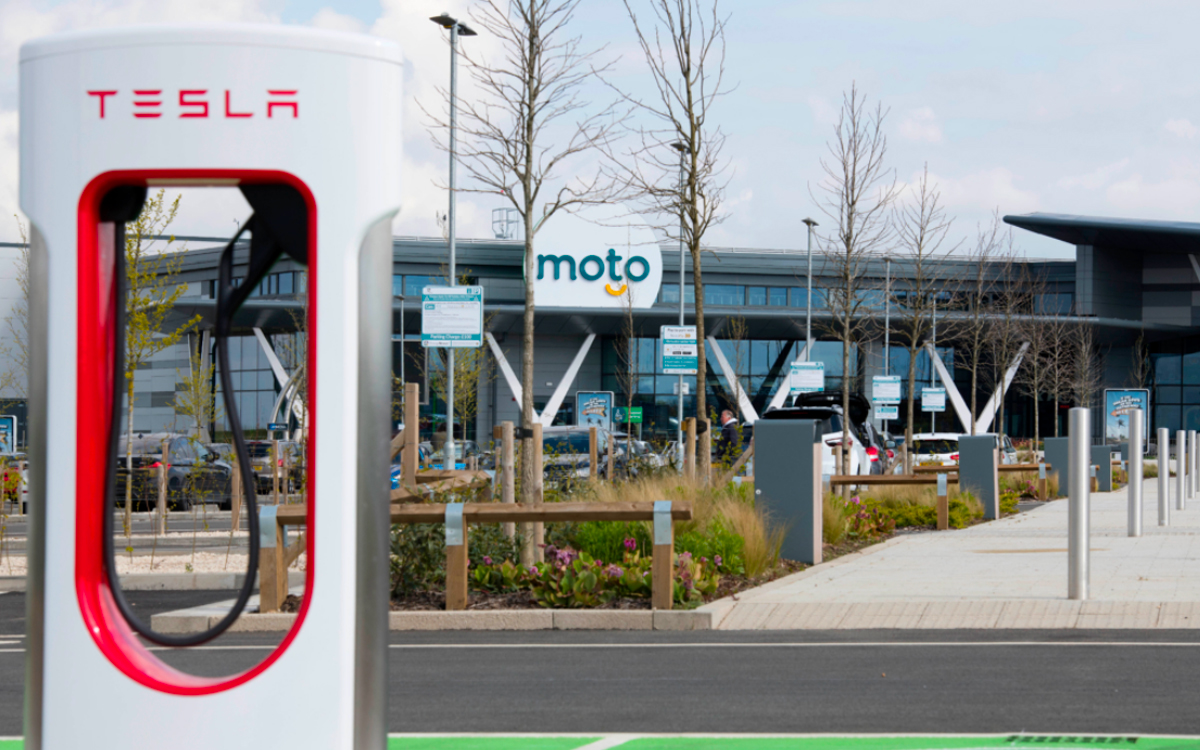Bleeding at the pump is not the prerogative of drivers of thermal cars. Indeed, more and more electric car owners are losing their calm at charging stations. In recent months, our British neighbors have noticed an increase in fights at charging stations. Explanations.

No, racing at the pump is not the prerogative of drivers of thermal cars. Electric car owners can also lose their nerves and come to blows at charging stations. As reported by our British colleagues from the Telegraph, charging station operators have observed for several months a clear increase in incivility and fights on their various sites.
A phenomenon also called “Charge Rage”. For Moto CEO Ken McMeikan (editor’s note: it is the largest manager of charging stations on British motorways), the country’s aging electricity grid is primarily responsible for this situation. Due to a lack of power, the various operators currently do not have the means to deploy more terminals, according to him.
The British electricity network singled out
As a result, when demand is particularly strong, such as during the All Saints’ Day or Christmas holidays for example, queues can reach disproportionate proportions. At the end of 2022, some English owners of electric cars have waited almost 6 hours to access a terminal on the busiest stations in the country.
Unsurprisingly, some are losing patience and show their anger against station employees or against other motorists. “People need to drive their electric cars without being anxious about range, without endless queues and without incivility, but during seasonal peaks, we experience everything That”assures Ken McMeikan.
To end the voltages at the terminal, Moto was forced to hire security guards at Exeter, Rugby and Wetherby stations in order to avoid possible brawls between motorists. The CEO of Moto, also the owner of an electric car, nevertheless alerted the British government to this problem.


The response from the British government is awaited
“I told them that the grid does not have sufficient capacity now to deliver the power we need and when we need it. If we do not have this guaranteed quantity of energy, well in the coming years every Christmas, every Easter, every summer vacation will be the equivalent of a shortage of gasoline and diesel,” he believes.
The boss also repeated to Jesse Norman, the British Minister of Transport and Ecological Transition, that these employees were the first victims of users exasperated by these endless waiting times.
Note that Ken McMeikan is not the first industry player to complain about the lack of power offered by the country’s electricity grid. The CEO of Gridserve, one of the main operators of charging stations across the Channel, was forced to invest in additional generators to meet demand. “The authorities are not solving the main problem, which is the electricity supply,” he concludes. On the Moto side, the manager had no other choice than to request permits for install 25 solar panel farms near its stations to provide sufficient energy.
Currently, there are more than 850,000 electric cars on the road in Britain, and 2 out of 10 new cars sold in August were a wattage model. A figure that will inevitably increase in the years to come, since the UK has pledged that half of the cars manufactured will be zero emissions by 2030. Let us remember, however, that the British government recently reversed course on the end of thermal engines, pushing back the deadline to 2035 and not 2030. That is to say a timetable identical to that of the European Union.
France still preserved from Charge Rage
In France, incivility has also been observed at charging stations: charging cables being torn off, owners of electric cars leaving their vehicles parked at a terminal for a long time, thermal cars parking in areas reserved for EVs, etc. However, the situation remains less problematic than in the United Kingdom, notably thanks to a much more developed network.
For good reason, France remains number 2 in charging in Europe, while the symbolic milestone of 100,000 terminals promised by the government was reached in May 2023. For the authorities, the objective is now to ensure an effective network of the territory. To achieve this, local authorities have recently had the obligation to plan the installation of terminals as part of a master plan, as our colleagues from Le Figaro point out.
Source: The Telegraph
